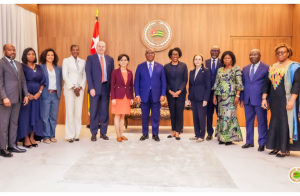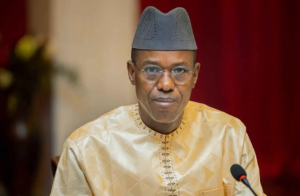Togo: Mrs Rose Kayi Mivedor improves working and living conditions for craftworkers

Under the leadership of President Faure Gnassingbé, Mrs. Rose Kayi Mivedor, Minister of Trade, Handicrafts, and Local Consumption, has reached a significant milestone in improving the working and living conditions of artisans in Togo. The recent decree, which came into effect on March 20th, clearly and comprehensively defines the status of artisans’ spouses, thereby formally recognizing their indispensable contribution to the artisanal sector.
Now, legally married spouses of artisans have a well-defined status, offering better protection and recognition of their rights.
According to the provisions of the decree, these spouses, who are regularly involved in the artisanal enterprise, have the choice between three distinct statuses: associate spouse, employee spouse, or family helper spouse.
The status of associate spouse grants the spouse co-ownership of the artisanal enterprise, regardless of their level of involvement in the activity.
This legal recognition strengthens their position in the business and ensures fair participation in profits and decisions.
For those opting for the status of employee spouse, they enjoy the same rights and obligations as other employees of the enterprise.
This guarantees social protection and equitable working conditions, in line with prevailing standards.
To implement these different statuses, artisanal business owners are now required to declare their spouse’s status to the local chamber of crafts.
This government initiative demonstrates its steadfast commitment to energizing the crucial artisanal sector, which significantly contributes to the national economy.
Indeed, with a contribution of 18% to GDP and nearly one million jobs generated across the country, handicrafts represent an essential pillar of Togo’s socio-economic development.
The measures taken by Mrs. Rose Kayi Mivedor, under the auspices of President Faure Gnassingbé, aim to strengthen the recognition and protection of artisanal actors while promoting their professional development and well-being.
These advancements reflect a progressive and inclusive vision for Togo’s sustainable development.
Chantal TAWELESSI











